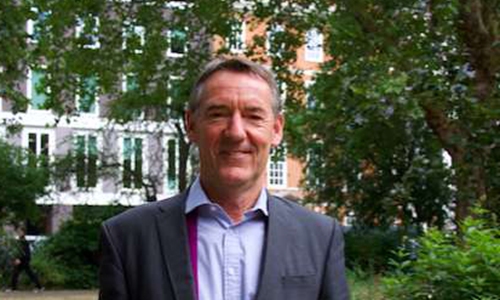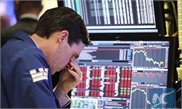Editor's Note:
The deadly novel coronavirus (COVID-19) is sweeping across the world and so is fear, as the number of infected patients, including political figures and celebrities, continues to swell. The West is supposed to have an advantage in information openness and transparency. Why hasn't it taken preemptive measures to stop the virus from spreading rapidly even after they witnessed how the epidemic broke out in East Asia? What lessons can they learn from China? Would Western countries duplicate China's virus-control measures? Jim O'Neill (O'Neill), chair of British think tank Chatham House and former UK Treasury Minister, shared his views with Global Times (GT) reporters Sun Wei and Li Aixin.

GT: There are many concerns about the global economic downturn caused by the COVID-19. To what extent will the global economy suffer?
O'Neill: The collapse in global stock markets in the past two weeks tells us all that markets are pricing in the chance of a global recession as being rather high. The famous economist, Paul Samuelson, once jokingly said, the stock market predicted eight of the past two recessions! It is true that markets over-predict booms and recessions. But it is also true that markets typically do anticipate recessions. So we need to respect what the markets are fearing. It is clear that the Chinese economy declined dramatically in February, so in that sense, given that China is nearly 20 percent of the world economy, the world's economy must have been close to a recession that month. In March, as China tries to recover, other economies start to weaken. Italy is obviously in some sort of recession, and much of Europe is not far behind. So a lot depends on the US, as well as the pace of a China pickup.
GT: What's your prediction? If the pandemic is brought under control in one or two months' time, what should countries do to recover more quickly?
O'Neill: I suspect that we will end up with a negative quarter of global GDP activity in Q1, and Q2 will be weak, but I also suspect Q3 and Q4 will see a significant recovery. The recovery will simply take place, as we return to normality.
GT: To be more specific, what areas of the global economy will suffer most? Will it have a profound impact on the international supply chain? Compared to developed economies, will this outbreak cause more damage to emerging markets?
O'Neill: Everyone will suffer. We are deliberately telling people to stop doing normal things, don't go into offices, don't go on holiday, don't travel, so it is consumer businesses as well as everything else. The only places that will avoid it are those that will have contained the virus infection quickly or are lucky enough to have a climate where it doesn't take hold. This is not going to distinguish between developed and emerging markets.
GT: In a recent interview, you suggested that Western governments, such as Italy and the UK, should look to emulate China, South Korea and Singapore in the swift deployment of aggressive containment measures. How likely or to what extent do you think European countries would duplicate China's methods? Would there be any challenges during the process?
O'Neill: As you can see, every country is choosing its own style. Italy has clearly decided to do some of the things China has done, and let's hope there are soon signs their infection spread is slowing. Other countries are trying to spread the impact over time, hoping to buy time until warmer weather arrives and the development of a vaccine.
GT: Why do you think European countries have not taken enough measures to stop the virus from spreading like a wildfire in advance after they witnessed the epidemic outbreak in East Asia?
O'Neill: I think it is because (just as was true in China), at first, the virus was present before health authorities realized, and by the time it started to become obvious, a lot of people were infected and already spreading it. On top of this, obviously in many complex democracies, it is difficult to completely shut down daily normal life, but as we can now see, some are doing so. I think the other notable difference is that it seems extremely difficult for Western democracies to build infrastructure quickly, whether it is roads, airports or new hospitals.
GT: The WHO has officially described the COVID-19 outbreak as a pandemic. Will that change European countries' methods of coronavirus prevention and control? How long do you think it will take for European countries and the US to get the pandemic under control?
O'Neill: I think most, if not all countries, were treating this as a pandemic before the WHO announced it formally. What different countries do is dependent on the expert advice of their chief medical officials, as well as the focus and imagination of their leaders, taking into consideration, the strength of their health systems. I hope, and suspect now, as each day passes, more and more European and developed countries will be studying closely what has been done by many Asian countries, as many, China included, but also South Korea and others, seem to have got some kind of control of the virus.
The deadly novel coronavirus (COVID-19) is sweeping across the world and so is fear, as the number of infected patients, including political figures and celebrities, continues to swell. The West is supposed to have an advantage in information openness and transparency. Why hasn't it taken preemptive measures to stop the virus from spreading rapidly even after they witnessed how the epidemic broke out in East Asia? What lessons can they learn from China? Would Western countries duplicate China's virus-control measures? Jim O'Neill (O'Neill), chair of British think tank Chatham House and former UK Treasury Minister, shared his views with Global Times (GT) reporters Sun Wei and Li Aixin.

Jim O'Neill Photo: Sun Wei/GT
GT: There are many concerns about the global economic downturn caused by the COVID-19. To what extent will the global economy suffer?
O'Neill: The collapse in global stock markets in the past two weeks tells us all that markets are pricing in the chance of a global recession as being rather high. The famous economist, Paul Samuelson, once jokingly said, the stock market predicted eight of the past two recessions! It is true that markets over-predict booms and recessions. But it is also true that markets typically do anticipate recessions. So we need to respect what the markets are fearing. It is clear that the Chinese economy declined dramatically in February, so in that sense, given that China is nearly 20 percent of the world economy, the world's economy must have been close to a recession that month. In March, as China tries to recover, other economies start to weaken. Italy is obviously in some sort of recession, and much of Europe is not far behind. So a lot depends on the US, as well as the pace of a China pickup.
GT: What's your prediction? If the pandemic is brought under control in one or two months' time, what should countries do to recover more quickly?
O'Neill: I suspect that we will end up with a negative quarter of global GDP activity in Q1, and Q2 will be weak, but I also suspect Q3 and Q4 will see a significant recovery. The recovery will simply take place, as we return to normality.
GT: To be more specific, what areas of the global economy will suffer most? Will it have a profound impact on the international supply chain? Compared to developed economies, will this outbreak cause more damage to emerging markets?
O'Neill: Everyone will suffer. We are deliberately telling people to stop doing normal things, don't go into offices, don't go on holiday, don't travel, so it is consumer businesses as well as everything else. The only places that will avoid it are those that will have contained the virus infection quickly or are lucky enough to have a climate where it doesn't take hold. This is not going to distinguish between developed and emerging markets.
GT: In a recent interview, you suggested that Western governments, such as Italy and the UK, should look to emulate China, South Korea and Singapore in the swift deployment of aggressive containment measures. How likely or to what extent do you think European countries would duplicate China's methods? Would there be any challenges during the process?
O'Neill: As you can see, every country is choosing its own style. Italy has clearly decided to do some of the things China has done, and let's hope there are soon signs their infection spread is slowing. Other countries are trying to spread the impact over time, hoping to buy time until warmer weather arrives and the development of a vaccine.
GT: Why do you think European countries have not taken enough measures to stop the virus from spreading like a wildfire in advance after they witnessed the epidemic outbreak in East Asia?
O'Neill: I think it is because (just as was true in China), at first, the virus was present before health authorities realized, and by the time it started to become obvious, a lot of people were infected and already spreading it. On top of this, obviously in many complex democracies, it is difficult to completely shut down daily normal life, but as we can now see, some are doing so. I think the other notable difference is that it seems extremely difficult for Western democracies to build infrastructure quickly, whether it is roads, airports or new hospitals.
GT: The WHO has officially described the COVID-19 outbreak as a pandemic. Will that change European countries' methods of coronavirus prevention and control? How long do you think it will take for European countries and the US to get the pandemic under control?
O'Neill: I think most, if not all countries, were treating this as a pandemic before the WHO announced it formally. What different countries do is dependent on the expert advice of their chief medical officials, as well as the focus and imagination of their leaders, taking into consideration, the strength of their health systems. I hope, and suspect now, as each day passes, more and more European and developed countries will be studying closely what has been done by many Asian countries, as many, China included, but also South Korea and others, seem to have got some kind of control of the virus.



